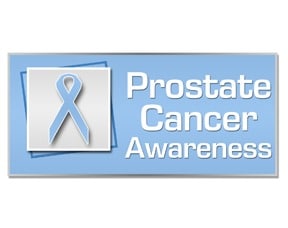(PRWEB) SEPTEMBER 12, 2017
After years of conflicting advice, two new studies may finally put the debate to rest over whether PSA screening for prostate cancer saves lives or not? A new review says PSA can reduce a man’s risk of dying from prostate cancer. The analysis of two major randomized trials found that prostate specific antigen or PSA, used as a screening tool to detect early prostate cancer, lowers a man’s risk of prostate cancer death by 25% to 32%.
“This is exactly what I have always supported for years that men, starting at age 40, need to have regular PSA tests done to find any prostate cancer at the earliest stage possible,” explained Dr. David Samadi. “This news is huge, and the timing of the release of this study could not have been better as it coincidentally coincided with September being Prostate Cancer Awareness Month. I believe these studies will help clear the confusion during a time of ongoing debate over PSA screening.”
The results found came from new research of revisiting the ERSPC (European Randomized Study of Screening for Prostate Cancer trial) and the PLCO (Prostate, Lung, Colorectal, and Ovarian Cancer Screening trial) that had originally been done in 2009. At that time, the two trials only led to confusion since they came to conflicting results. The European trial found a 20% reduced risk of death in men who underwent the screening while the PLCO study found no benefit from PSA screening.
“Because of the fact the two studies came up with different results, the U.S. Preventative Service Task Force (USPSTF) made the controversial decision in 2012 recommending against PSA testing altogether,” stated Dr. Samadi.
However, each study was designed very differently. The PLCO trial, conducted in the U. S., had no “control” group in which no men received PSA screening. What the researchers of that study at that time did instead was to compare the results of random versus routine screening of men.
“That is why the researchers decided to take another look at the two studies to get a more comparable view between the two of them,” explained Dr. Samadi. “To adjust for this, some mathematical adjustments were made to account for the differences in how each study was implemented and for the practice settings. After making these adjustments, surprisingly the two trials ended up being quite similar. The ERSCP trial showed a 25% to 31% reduced risk while the PLCO or U.S. trial showed a 27% to 32% lower risk of prostate cancer death thanks to PSA screening.”
The ERSPC trial included 72,473 men in a screening arm of the trial and 88,911 men in a control arm, with the ages of the men ranging from 55 to 69. There were 38,340 men in the screening arm of the PCLO trial and 38,343 men in a control arm with their ages ranging from 55 to 74.
“I’m hopeful that because of the results from this fresh look at these two trials, the USPSTF will reconsider its stance against PSA screening,” stated Dr. Samadi. “The message I want men to hear is that after the age of 50 a man’s risk for prostate cancer greatly increases. But men as young as 40 can and do get prostate cancer which is often more aggressive. My goal is to have all men starting at age 40, be screened annually for prostate cancer by having a PSA test. This not only helps to detect early prostate cancer but also provides a baseline level for comparison with future PSA tests. The earlier prostate cancer can be diagnosed and treated, the greater likelihood of becoming cancer free. And I want as many men as possible to be saved from this disease.”
Patients newly diagnosed with prostate cancer can contact world renowned prostate cancer surgeon and urologic oncologist, Dr. David Samadi, for a free phone consultation and to learn more about prostate cancer risk, call 212-365-5000.


